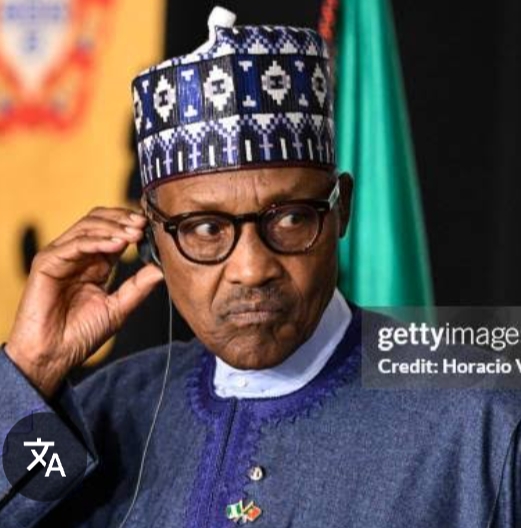News
Why Buhari govt was shoved aside – IBB

By Kayode Sanni-Arewa
Ex-military head of state, Ibrahim Badamasi Babangida (IBB), has stated that he shoved aside Muhammadu Buhari’s regime because he believed his policies were detrimental to the nation’s progress.
The former military leader disclosed this in his autobiography, ‘A Journey In Service’, launched in Abuja on Thursday.
Babangida was chief of staff to Buhari, who ousted Shehu Shagari’s civilian government in the December 31, 1983 coup.
After the military coup that replaced the civilian government of Shehu Shagari with a military regime led by Major General Muhammadu Buhari, Ibrahim Babangida assumed the Chief of Army Staff role.
However, he became increasingly dissatisfied with the Buhari government’s policies and leadership style, which he described as draconian.
Recalling how he journeyed from Minna to Lagos on August 27, 1985, to assume office, Babangida said tension had already begun to build up since the start of the year, and a change in leadership had become necessary.
He said, “On that day, it became my lot to step into the saddle of national leadership on behalf of the Nigerian armed forces. The change in leadership had become necessary as a response to the worsening mood of the nation and growing concern about our future as a people. All through the previous day, as we flew from Minna and drove through Lagos towards Bonny Camp, I was deeply reflecting on how we as a nation got to this point and how and why I found myself at this juncture of fate.
“By the beginning of 1985, the citizenry had become apprehensive about the future of our country.
The atmosphere was precarious and fraught with ominous signs of clear and present danger. It was clear to the more discerning leadership of the armed forces that our initial rescue mission of 1983 had largely miscarried. We now stood the risk of having the armed forces split down the line because our rescue mission had largely derailed. If the armed forces imploded, the nation would go with it, and the end was just too frightening to contemplate.
“Divisions of opinion within the armed forces had come to replace the unanimity of purpose that informed the December 1983 change of government. In state affairs, the armed forces, as the only remaining institution of national cohesion, were becoming torn into factions; something needed to be done lest we lose the nation itself. My greatest fear was that division of opinion and views within the armed forces could lead to factionalisation in the military. If allowed to continue and gain root, grave dangers lay ahead.”
News
Reps Give Fire Service Boss 24 Hours to Appear

By Gloria Ikibah
The House of Representatives has given a 24-hour ultimatum to the Controller-General of the Federal Fire Service, Jaji Abdulganiyu, demanding his personal appearance over the recent fire truck accident in Abuja that left three people dead and several others injured.
This directive was issued on Tuesday by the Minority Whip, Rep. Ali Isah, following the agency’s failure to honour an earlier invitation to address the matter.
Naijablitznews.com recalled the tragic incident occurred on Friday evening at ECOWAS Junction, Wuse 2, during an emergency operation at Avenue Plaza, Banex, where a fire truck reportedly lost control, claiming the lives of three siblings.
Rep. Isah expressed dismay that despite graphic videos circulating online, the Fire Service had not issued any public statement or shown presence at the scene. He called on the agency to visit the bereaved family without delay, cover all medical expenses of the victims receiving treatment, and arrange adequate compensation.
He also demanded that the Fire Service take concrete steps to prevent such an incident from happening again.
Earlier in his brief, a top-ranking officer in charge of Administration and Supplies at the Fire Service, Samuel Olumode, admitted the agency deeply regretted the fatal incident in Abuja.
He stated that while the Controller-General couldn’t appear in person due to pressing state duties, he had given clear instructions for a team, including Olumode himself, to represent the service at the hearing.
Olumode eemphasised hat no one takes the loss of life lightly, especially when such a loss is irreversible. He attributed the tragic occurrence to the urgent and chaotic nature of the firefighting operation that night.
According to him, the driver of the fire truck did not stop at the scene immediately after the crash, fearing possible attacks from an angry crowd, something fire crews reportedly face often. However, the driver later turned himself in at the nearest police station and has remained in custody since.
Olumode also disclosed that the Fire Service, under the leadership of the CG, had already begun reaching out to those affected. Visits had been made to the victims’ family and the injured in hospital. Fire officers were also present at the funeral held at the National Mosque and the burial that followed.
He described the moment as extremely difficult for the bereaved family and confirmed that another team had visited the boys’ mother to console her personally.
Olumode added that the Fire Service had made a public apology, which was aired and published by several leading media outlets across the country.
News
Bill to transform YabaTech to University scales second reading in Senate

By Francesca Hangeior
The move to transform YabaTech in Lagos State to a University of Technology and Vocational Studies has got a boost as a Bill to this effect has scaled second reading in the Senate.
After being read the second time yesterday, the Deputy President of the Senate, Senator Barau Jibrin, APC, Kano North, who presided at Tuesday’s plenary session, thereafter referred it to the Committee on Tertiary Education and TETFUND for further legislative action and report back in four weeks.
It is titled, a Bill for an Act to provide for the Establishment of the Yaba Federal University of Technology and Vocational Studies Yaba, Lagos State and to make comprehensive provisions for its due management and administration and for other related matters, 2025 (SB. 738).
In his lead debate on the general principles of the bill, the Senate leader, Senator Opeyemi Bamidele, APC, Ekiti Centra,l said that the Bill essentially seeks to transform and upgrade the YabaTech to Yaba Federal University of Technology and Vocational Studies, Yaba, Lagos State, which has already been done via a presidential fiat.
Bamidele said, “This Bill seeks to establish Yaba Federal University of Technology and Vocational Studies Yaba, Lagos State. The Bill was read the first time in this Hallowed Chamber on Tuesday, 11th March, 2025.
“The Bill essentially seeks to transform and upgrade the YabaTech to Yaba Federal University of Technology and Vocational Studies, Yaba, Lagos State, which has already been done via a presidential fiat.
“Nigeria’s steady march towards education for all in the shortest possible time has taken a giant leap with the introduction of this Bill for an Act to provide for the establishment of this University.
“I am personally excited by the prospect of transforming this Polytechnic to a University of Technology and Vocational Studies as it will motivate both students and academic staff, just as it will upgrade its facilities and enhance its capability to achieve its objectives.
Similarly, The New University will encourage the advancement of learning and hold out to all persons without distinction of race, creed, sex or political conviction the opportunity of acquiring a higher and liberal education. It will also do the following: Provide courses of instruction and other facilities for the pursuit of learning in all its branches, and to make those facilities available on proper terms to such persons as are equipped to benefit from them; Encourage and promote scholarship and conduct research in all fields of learning with emphasis on technical education”
According to the Senate leader, the new school will m”Relate its activities to the social, cultural and economic needs of the people of Nigeria; and Undertake any other activities appropriate for a university of the highest standards.
“If Nigeria, as planned, should aim to become one of the world’s twenty leading economies of the world in this 215t century, we must be ready to adjust and position our educational institutions so that its products are geared towards technological challenges inherent in such projections. Our educational authorities are moving to revamp our institutions for these objectives.
Yaba Federal University of Technology and Vocational Studies, when enacted by the National Assembly will have power to establish such campuses, colleges, faculties, institutes, schools, extra-mural departments and other teaching and research units within the University as may from time to time seem necessary or desirable subject to the approval of the National Universities Commission.
“To ensure continuity in the administration of the university, all property held by or on behalf of the Yaba Polytechnic shall be vested in the University and be held by it for the purposes of the University. Notably, all staff of the Polytechnic are hereby transferred to the University and previous service in the Polytechnic shall count as service for the purposes of any pension payable by the University.
” The institution is prepared to undertake the educational and other modifications that are a natural corollary of transforming to a university. The institution is also prepared to remains true to its core mandate of producing well-trained manpower capable of driving the technological, management and business goals of the nation.
“In this regard, it will seek to emulate the Massachusetts Institute of Technology (MIT) which has built upon a tradition of distinction to become one of the world’s foremost educational institutions.
News
Lawyer faults Amnesty report linking Imo killings to IPOB

By Francesca Hangeior
A human rights lawyer and counsel for the Indigenous People of Biafra, Ifeanyi Ejiofor, has faulted the Amnesty International report on Okigwe killings, describing it as “hasty and full of inconsistencies”, just as he called for a thorough, impartial, and evidence-based investigation.
Recall that some yet-to-be-identified armed men reportedly ambushed and killed some travellers along the Okigwe Road in Imo State, some days ago.
The alleged killings have triggered mixed reactions, with a call for a thorough investigation to unravel the perpetrators.
But in a statement released on Tuesday, Ejiofor said the quick attribution of the killings to IPOB, without exhaustive verification, raises serious concerns about the integrity and neutrality of the Amnesty International report.
According to him, this approach does not align with the expected standards of a globally respected human rights organisation.
He said while he condemned the killing of the innocent travellers by yet-to-be-identified “heartless” perpetrators, he called on Nigerian security agencies to promptly and meticulously investigate the heinous crimes and ensure that those responsible are identified, apprehended, and prosecuted according to the law.
The statement read, “In light of the recent hasty statement issued by Amnesty International (Nigeria) on the Okigwe killings, it is imperative to underscore the need for a thorough, impartial, and evidence-based investigation.
“The quick attribution of the killings to IPOB, without exhaustive verification, raises serious concerns about the integrity and neutrality of the report.
“It must be unequivocally stated that no individual or authority, regardless of their constitutional powers, is permitted to take another’s life outside the due process enshrined in Section 33 of the 1999 Constitution of the Federal Republic of Nigeria (as amended). The sanctity of human life must remain inviolable.
“I call on Nigeria’s security agencies to promptly and meticulously investigate these heinous crimes and ensure that those responsible are identified, apprehended, and prosecuted according to the law.
“The security agencies should stop paying lip service as they often do, and actually conduct a thorough investigation into these dastardly and wanton killings.”
The human rights lawyer said upon a careful review of Amnesty International Nigeria’s statement, several inconsistencies and troubling lapses were observed, such as “questionable sources of casualty figures, premature attribution of blame, potential conflict of interest and ongoing threats in the region”.
“Amnesty International Nigeria reported specific casualty figures without disclosing any independent verification sources.
“This departs from their well-established protocol, which emphasises independent investigations often taking days or weeks before conclusions are drawn.
“While the police acknowledged the attack, they refrained from confirming exact casualty numbers or the real identity of the attackers. Amnesty’s conclusive link to IPOB, therefore, appears speculative and unsubstantiated.
“Concerns have also been raised about the neutrality of the Country Director of Amnesty International Nigeria, who use to hold a political appointment as Special Assistant to the Governor of Yobe State. This dual role casts a shadow over the objectivity of the organisation’s reporting.
“It is a well-known fact that remnants of armed elements loyal to Simon Ekpa continue to destabilise communities across the South-East. While this remains a security concern demanding urgent state intervention, it should not justify rushed attributions of blame without due diligence,” he added.
According to him, national and international stakeholders must demand a credible, unbiased, and fact-driven investigation into the Okigwe killings.
He insisted that the loss of innocent lives must not be politicised or sensationalised, adding that justice must not only be done but must be seen to be done, both to honour the victims and to safeguard the rule of law in our democracy.
“Only the truth, firmly established through rigorous investigation, can pave the path to justice and lasting peace,” he said.
-

 News10 hours ago
News10 hours agoJust in: Another major headache as 3 PDP senators defect to APC
-

 News19 hours ago
News19 hours agoUS revokes governor’s visa
-

 News20 hours ago
News20 hours ago2nd Anniversary: Tinubu to commission Abuja International Conference Centre – Wike
-

 News12 hours ago
News12 hours agoUnion seals Lagos company over racial discrimination of workers
-

 News11 hours ago
News11 hours agoCourt Jails Two Six Months for Naira Abuse in Lagos
-

 Metro19 hours ago
Metro19 hours agoTension in Ondo community as herdsman dies in clash with vigilance group
-

 News19 hours ago
News19 hours agoTaraba Woos Global Investors Ahead of Landmark Economic Summit
-

 News11 hours ago
News11 hours ago$1.43m scam: Ajudua on the run as Supreme Court orders his return to prison


















